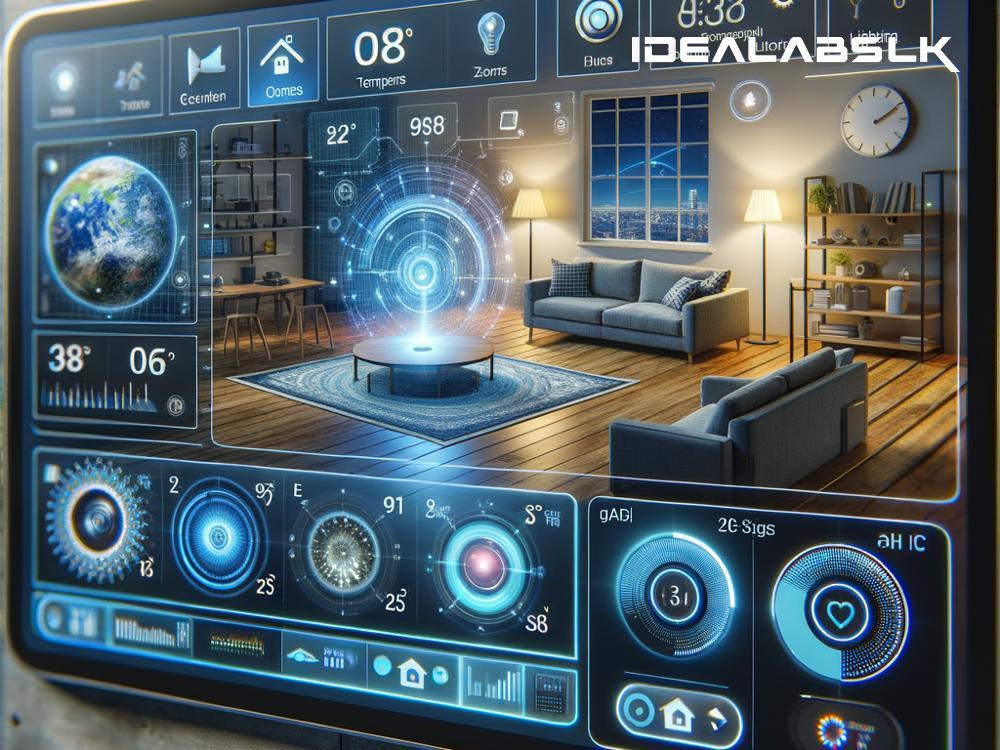How AI Powers Up Smart Sensor Networks in Our Homes
In today's world, where everything seems to be getting smarter—from our phones to our cars—it's no surprise that our homes are also getting a major tech upgrade. One of the coolest advancements making our homes smarter and our lives easier are smart sensor networks powered by AI, or artificial intelligence. But what exactly does this mean, and how does it all work? Let's break it down in simple English.
What is a Smart Sensor Network?
Imagine you're playing a massive multiplayer online game, but instead of players, you've got a bunch of tiny gadgets spread all over your house. These gadgets can sense things like motion, temperature, humidity, light, and even the quality of the air. Just like players in a game, they talk to each other and make decisions based on what's happening around them. This team of gadgets is what we call a smart sensor network.
The Brain Behind the Operation
Now, for the team to work smoothly and smartly, it needs a good coach. This is where AI comes in. AI acts as the brain of the operation. It takes all the information the sensors are gathering, thinks about it, and then makes decisions on what to do next. For example, if a motion sensor in your living room notices there's no movement for a while, AI can decide it's time to turn off the lights to save energy.
Making Life Easier and Safer
Smart sensor networks powered by AI can make our homes not just more comfortable, but also safer. Imagine your sensors detect a leak or smoke; not only can they alert you instantly, but they can also take action, like shutting off the water supply or turning on the house ventilation. It's like having a superhero team on standby, ready to jump into action when needed.
How Does AI Automate These Networks?
-
Learning Your Habits: AI is like a super attentive friend—it pays attention to your habits and learns from them. If you usually crank up the heating around 6 PM when you get cold, the AI will pick up on this pattern and start doing it for you, automatically.
-
Talking Amongst Themselves: The sensors in the network talk to each other through the AI. If the sunlight sensor notices it's getting dark outside, it can tell the lights in your home to turn on, all without you having to lift a finger.
-
Adapting to Changes: AI is really good at adapting. If for some reason you start waking up earlier than usual, it will notice this and might decide to start heating the house a bit earlier so you're comfortable when you get out of bed.
-
Saving Money: By learning when you use certain appliances and lights, the AI can also help cut down on unnecessary usage, which means saving money on your energy bills.
The Future is Smart
As AI technology improves, smart sensor networks in our homes will become even more intuitive and helpful. We're looking at a future where our homes not only understand our needs but anticipate them. Your fridge might be able to tell when you're running low on milk and either alert you or even order it for you. Your bathroom could start warming up right before your alarm goes off in the morning, so it's nice and cozy when you step in for a shower.
Embracing the Change
While the idea of your house being run by AI might sound like something straight out of a sci-fi movie, it's quickly becoming a reality. And it's not something to be wary of; it's something to embrace. The automation of smart sensor networks in our homes is all about making our daily lives easier, more comfortable, and safer.
As we move forward, it will be exciting to see just how much smarter our homes can get. Whether it's saving us a trip to the grocery store, trimming down our energy bills, or keeping us safe, the potential benefits are immense. So, here's to a future where our homes not only shelter us but truly take care of us, thanks to the incredible power of AI. Welcome to the age of the smart home!

